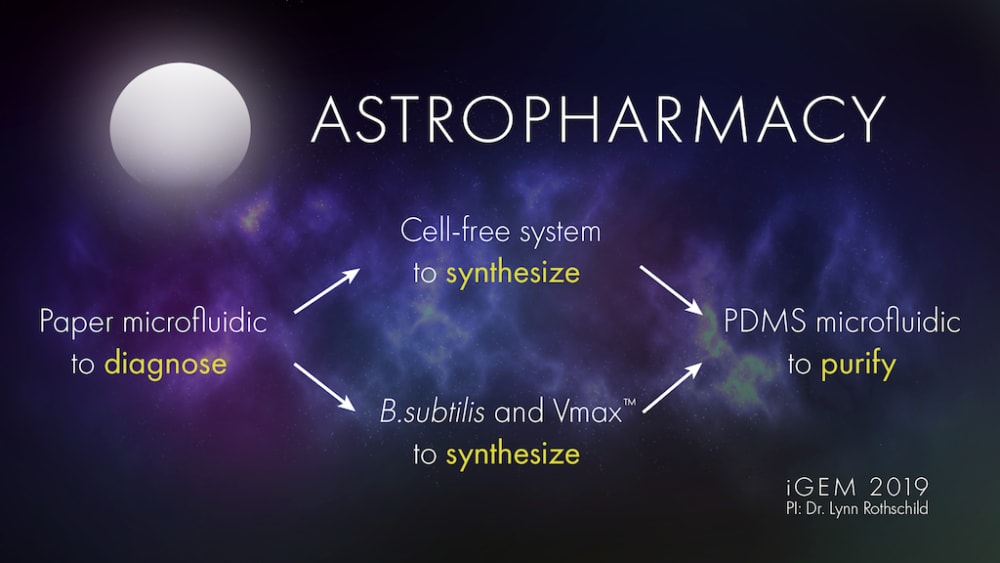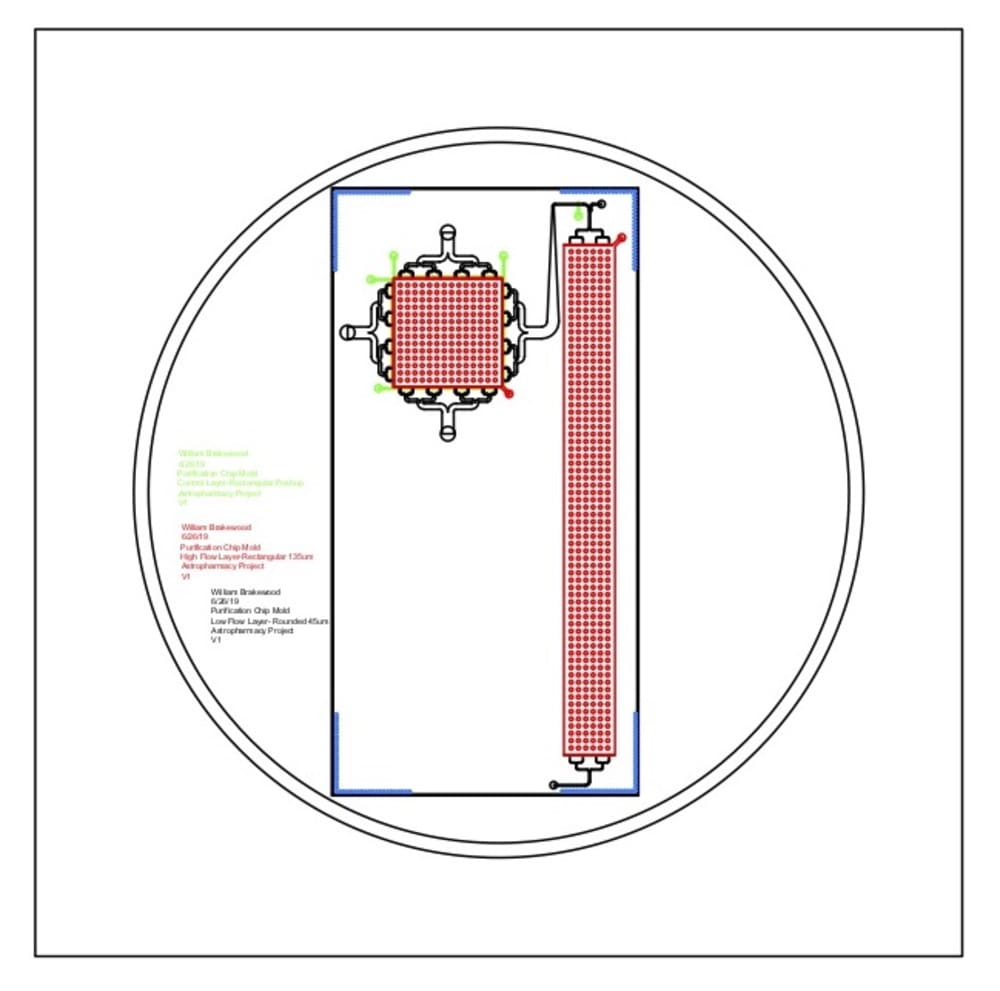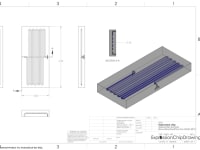

What happens when an astronaut gets sick? Current missions require that astronauts take medications with them from Earth. But many medications degrade over time, especially protein drugs, and the necessary stockpile takes up precious mass and volume on a spacecraft. With the push towards long-term human missions to the Moon and Mars, this model is not sustainable. Even on Earth, there are many people without access to critical medicines because regional production and distribution systems are lacking, especially in remote areas, resource-poor areas and in austere environments. Our solution is an “Astropharmacy” – an innovation that allows protein drugs to be produced “on demand,” even in the remote environment of space, using genes as templates for cellular or cell-free expression of proteins.
For synthesis, we utilize both cellular and cell-free systems for drug manufacturing. Our cellular system uses bacteria, such as Vibrio natriegens (Vmax) or Bacillus subtilis. Vmax can be stabilized by lyophilization, and Bacillus subtilis can be stabilized in the spore form. Both stabilized forms can be stored for years in a dry state, without the requirement for refrigeration, which facilitates transportation to any remote environment. Vmax is a highly replicative bacterium with a doubling time <14 minutes, and B. subtilis spores have been shown to be viable after several years in Earth orbit. Alternatively, a cell-free system takes advantage of the transcriptional and translational machinery to generate high protein yields by operating outside the constraints of a living cell. Both systems can synthesize drugs on demand, allowing us to bypass shelf-life and storage limitations, which will become necessary when long-duration space flight becomes a reality. The three drugs we are manufacturing include insulin, teriparatide, and G-CSF. Insulin would have a large impact on Earth for the 65 million people worldwide who require insulin for diabetes, particularly those in resource-poor areas or those outside of the established distribution networks for pharmaceuticals. Teriparatide promotes bone growth to combat osteoporosis from age, or the effects of microgravity when in space. G-CSF stimulates the re-growth of white blood cells to treat the effects of radiation therapy in cancer patients or radiation exposure in astronauts. Both drugs have shelf-lives of two years or less.
After drug synthesis, the next step is drug purification on a microfluidic chip. These chips can be automated for future access and ease of use with only minimal training.
Ensuring access to medications is a critical step in becoming a multi-planetary species. While we prepare for this futuristic reality, our technology will have immediate benefits on Earth. We envision this system as a powerful tool in remote areas with poor access to short shelf-life medications and proper storage, especially when used with current drone technology. Additionally, this technology could be instrumental in producing “orphan drugs” for diseases affecting a small subset of individuals. Everyone deserves access to medication, and we believe this Astropharmacy can overcome many of the challenges limiting drug access for millions of people.
Video
-
Awards
-
 2019 Sustainable Technologies Honorable Mention
2019 Sustainable Technologies Honorable Mention -
 2019 Top 100 Entries
2019 Top 100 Entries
Like this entry?
-
About the Entrant
- Name:Teaghan Cowles
- Type of entry:teamTeam members:Arvind Veluvali (Brown)
Allison Lin (Brown)
Sophia Zheng (Brown)
William Brakewood (Brown)
Alexandra Rempe (Brown, RISD)
Cameron Park (Stanford)
Alexander Somero (Stanford)
Teaghan Cowles (Stanford)
Cale Lester (Stanford)
Dominique WuDunn (Princeton)
Mary Elizabeth Adler (Princeton)
Advisor, Dr. Lynn Rothschild (NASA Ames)
Advisor, Patrick Brennock (NASA Ames)
Advisor, Tomasz Zajkowski (NASA Ames) - Patent status:none








